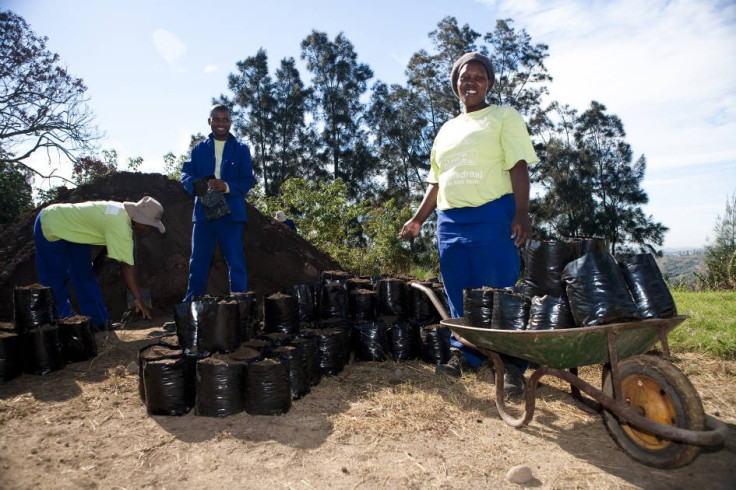Climate Change: Durban’s Plan to Offset Carbon Footprint From COP17 Summit

A staggering 15,000 tonnes of CO2 is expected to be produced during the COP17 Climate Change Conference but host city Durban has a plan to offset the carbon footprint.
The estimation is based on the assumption that 25,000 people will visit the South African city during the Climate Change Conference, due to commence on Nov. 28, and has taken into consideration factors like accommodation, conference venues, transportation and waste removal logistics.
The initiative, called Community Ecosystem Based Adaptation (CEBA), is a joint venture between the Wildlands Conservation Trust and eThekwini Municipality which includes the city of Durban.
CEBA fosters the link between communities and ecosystems and ways in which they can be supported.
The Durban CEBA Initiative is one of the most exciting elements of the city's broader COP17 Greening Programme, says eThekwini Environmental Planning and Climate Protection Department (EPCPD) deputy head, Dr Debra Roberts.
COP17 delegates will be able to purchase 'CEBA credits' to offset the carbon footprint of the event.
"Durban is increasingly being acknowledged as a global leader in the environmental field and more specifically in the area of climate protection planning. COP17 provides a critical opportunity for the city to demonstrate its environmental approach through the COP17-CMP 7 Greening Programme, which aims to minimise the environmental impact of the event," Roberts said.
South Africa's government is said to be focusing on other aspects of the carbon footprint as well, such as international air travel and implementing efficient public transport, including airport and hotel shuttle services, as a way to reduce carbon emissions related to the event.
Adaptation will be prioritised to counteract the effects of the carbon footprint. CEBA will focus on communities restoring their natural ecosystems, creating cleaner and greener neighbourhoods. Their first project would be the restoration and reforestation of the uMbilo River catchment.
One CEBA credit will cost R100 (about £8 or US$10) and will employ one local community member for a day to undertake a range of climate protection work such as invasive alien plant (IAP) clearing, ecosystem restoration or community recycling.
This work is directed towards both reducing climate change impacts through reducing emissions and in building resilience and adaptability to climate change in vulnerable communities.
Unemployed people from the neighbouring communities will then be employed as 'green collar' workers to first remove alien plants and trees, Roberts said.
The initiative also involves planting indigenous forest plants and implementing a new ecosystem restoration project.
Initial funding for the project would come from the city, the corporate sector and the Wildlands Conservation Trust.
"We want this project to not only benefit the ecological sustainability of the river, but the social sustainability of poor communities along it," Roberts said.
© Copyright IBTimes 2024. All rights reserved.






